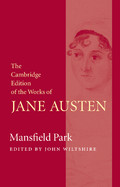Book contents
- Frontmatter
- Contents
- General Editor’s preface
- Acknowledgements
- Chronology
- Introduction
- Note on the text
- Volume I Mansfield Park
- Volume II Mansfield Park
- Volume III Mansfield Park
- Introductory note on Lovers’ Vows
- Lovers’ Vows
- Corrections and emendations to 1816 text
- Appendix: Commentary on the text
- Abbreviations
- Explanatory notes
Lovers’ Vows
Published online by Cambridge University Press: 18 December 2020
- Frontmatter
- Contents
- General Editor’s preface
- Acknowledgements
- Chronology
- Introduction
- Note on the text
- Volume I Mansfield Park
- Volume II Mansfield Park
- Volume III Mansfield Park
- Introductory note on Lovers’ Vows
- Lovers’ Vows
- Corrections and emendations to 1816 text
- Appendix: Commentary on the text
- Abbreviations
- Explanatory notes
Summary
PREFACE ON THE FIRST PUBLICATION OF LOVERS’ VOWS
It would appear like affectation to offer an apology for any scenes or passages omitted or added, in this play, different from the original: its reception has given me confidence to suppose what I have done is right; for Kotzebue's “Child of Love,” in Germany, was never more attractive, than “Lovers’ Vows” has been in England.
I could trouble my reader with many pages to disclose the motives, which induced me to alter, with the exception of a few common-place sentences only, the characters of Count Cassel, Amelia, and Verdun the Butler—I could explain why the part of the Count, as in the original, would have inevitably condemned the whole play—I could inform my reader why I have pourtrayed the Baron, in many particulars, different from the German author, and carefully prepared the audience for the grand effect of the last scene in the fourth act, by totally changing his conduct towards his son, as a robber— why I gave sentences of a humourous kind to the parts of the two Cottagers—why I was compelled, on many occasions, to compress the substance of a speech of three or four pages, into one of three or four lines—and why, in no one instance, I would suffer my respect for Kotzebue to interfere with my profound respect for the judgment of a British audience. But I flatter myself such a vindication is not requisite to the enlightened reader, who, I trust, on comparing this drama with the original, will, at once, see all my motives—and the dull admirer of mere verbal translation, it would be vain to endeavour to inspire with taste by instruction.
Wholly unacquainted with the German language, a literal translation of the “Child of Love” was given to me by the manager of Covent Garden Theatre, to be adapted, as my opinion should direct, for his stage. This translation, tedious and vapid, as most literal translations are, had the peculiar disadvantage of having been put into our language by a German—of course, it came to me in broken English. It was no slight misfortune, to have an example of bad grammar, false metaphors and similes, with all the usual errors of imperfect diction, placed before a female writer.
- Type
- Chapter
- Information
- Mansfield Park , pp. 555 - 629Publisher: Cambridge University PressPrint publication year: 2005

